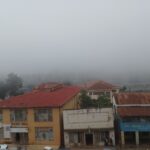Defecting MPs to cost tax payers K4.6 billion
Published on July 2, 2012 at 12:06 AM by FACE OF MALAWI
As Malawians continue to suffer the effects of the devaluation of the kwacha and the attendant skyrocketing commodity prices, they will have to dig deeper into their holey pockets to fish out K4.6 billion (about $18.4m) to fund by-elections if prostituting MPs lose their seats because of Section 65 of the Constitution.
Forty-one MPs, 39 from DPP and two from UDF, face the chop after their parties wrote Speaker Henry Chimunthu Banda to declare their seats vacant on the basis that they crossed the floor to the governing People’s Party (PP) of President Joyce Banda.
In an interview this week, head of media and public relations at the Malawi Electoral Commission (MEC) Sangwani Mwafulirwa said the organisation needs K112.5 million (about $450 000) to organise a by-election.
This means for 41 constituencies, Malawians will have to part with K4.6 billion, money that could have helped save the lives of people dying in the country’s hospitals because of the shortage of drugs and other medical equipment.
Instead, the heavily burdened taxpayer will have to shoulder the cost of gold-hunting and opportunism that motivated the MPs to leave their sponsoring parties for the holy grail of the ruling PP.
Besides the K4.6 billion, MEC will also need K225 million for two by-elections in Mzimba Central and South West, taking the cost to about K5 billion (about $20m).
The two seats fell vacant following the deaths of Professor Donton Mkandawire and the ascendancy to the vice-presidency of Khumbo Kachali.
Mwafulirwa said that in the two by-elections, the electoral body has a budget of K225 million (about $900 000).
He said the order of conducting a by-election is the same as for any other election conducted by MEC.
“MEC will announce a calendar for the by-elections which will also mention the day the polls will be done and all activities involved. These activities will include registration of new voters especially those that will have attained voting age, receiving of nomination papers and screening of intending candidates, printing of ballot papers, civic education and public mobilisation, the actual polling, counting of votes and announcing of results.
“Besides these activities, there are also some preparatory tasks by the Commission which include recruitment and training of registration and polling staff,” said Mwafulirwa.
He said when presenting annual budgets to government, MEC always makes a provisional allocation for by-elections.
“This is provisional because it cannot be known in advance as regards how many seats will become vacant necessitating holding of by-elections.
“The provisional amount varies from year to year depending on prevailing cost factors. While MEC sets its own budgets, government always funds according to the resource envelope available,” said Mwafulirwa.
The Section 65 drama has been characterised by maddening twists and turns, at times bordering on a charade. Initially, DPP asked the Speaker to declare vacant seats of its 45 MPs who the party said had defected to PP.
Fearing the impending axe, some MPs scurried back into the party, reducing the figure to 40. Then MP for Ntcheu West Chikumbutso Hiwa sought a court injunction restraining the Speaker from declaring his determination on the matter.
While the injunction was still effective, DPP withdrew the petition against the MPs, saying the party did not want to be seen to be sabotaging the budget. However, after budget passed last Wednesday, the party made a fresh submission to the Speaker on Thursday, this time targeting 39 MPs.
“Our withdrawal was mainly because of the budget, but now that the budget has passed we will recommence the whole process on Section 65,” Dr. George Chaponda, DPP leader in Parliament told journalists on Thursday.
Meanwhile, UDF also said two of its MPs have fallen foul of the dreaded but so far largely toothless constitutional provision.
Whether this time Section 65 will dip its teeth into the flesh of the errant MPs is a question whose answers lie in politics, not the law.
The law is clear that MPs who win elections on a party ticket but join a party, organisation or association that is political in nature should lose their seats.
The only MPs who are safe from the provision are those who won elections as independents.
One illuminating fact about Section 65 is that throughout its short but tortured history, the provision has mainly been a scarecrow. Its application has been so selective and ineffective that only those in opposition ranks have fallen victim to its dictates.
This defies logic considering that the vast majority of MPs who cross paths with the law join the governing party.
To put the issue into perspective, it is important to note that only one MP, the late Fred Nseula, has so far lost his seat permanently because of Section 65. This in itself is a rich story that says a lot about how much politics can suffocate and trump the law.
At the time, UDF, which was in power, argued that Nseula had joined MCP, an opposition party.
In the context of such history of the provision, some people have argued that the country should repeal the law because it is not serving any purpose. However, the question that looms large is: Do you change the law because those who break it cry wolf and slip through the dragnet?


